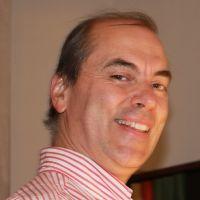 Dear MAA Members,
Dear MAA Members,
As I write, in early February, medievalists from across North America and from abroad are registering for the upcoming Annual Meeting hosted by the University of Virginia in Charlottesville (March 10-13, 2022), and I encourage as many of you as are able to participate in this fully hybrid conference.
I want to thank the organizing committee led by Deborah McGrady, Bruce Holsinger and Eric Ramirez-Weaver, for collaborating with medievalists from across the state of Virginia in crafting a program that is truly representative of the diversity of our membership and offers the broadest range of topics as well as approaches in medieval studies. The thematic strands that are used to index the various sessions in the program give a good sense of the range: political medievalism; passion and the emotions; gender and identities; queering the medieval; Inter-religious coexistence and conflict; medieval materialisms, interreligious coexistence and conflict; race and its intersections; medieval disability/disabilities; plague and pandemic, vulnerability and the ethics of care; and environment and ecology, political medievalism, rethinking the global medieval; trade and cultural exchange revelation and reason in medieval science; pedagogies: material, digital, embodied. The conference is also notable for the geographic reach of its topics moving well beyond the traditional borders of medieval Europe and the Mediterranean to include papers on medieval China, Islam, and Nubia. In addition, there are panels and roundtables focused on professional development, on pedagogy, mentoring, and sharing graduate student research online.
I would like to highlight the two distinguished plenary addresses which explicitly address the fraught and highly politicized times we must negotiate as scholars of the Middle Ages: Roland Betancourt (Associate Professor of Art History at UC-Irvine) “The Allure of Secrecy and the Challenge of History: Crafting the Middle Ages in an Era of Conspiracy and Radicalization” and Seeta Chaganti (Professor of English, University of California, Davis) “Charlottesville and the Liberalism of Medieval Studies.” The conference responds to the moment we live in another way with a plenary round table on “Medieval Studies for the Modern Age: New Approaches to Medicine, Disease, and Health” featuring contributions by Hannah Barker, Meg Leja, Alex More and Sharon De Witte with Monica Green as discussant.
The Annual Meeting promises to promote a nuanced understanding of a culturally complex, multifaceted, global medieval world that stands in sharp contrast to the medievalisms that are too often presented either by popular culture or by those fringe groups in the US and Europe who have recently misconstrued the Middle Ages for racist purposes.
I look forward to seeing many of you at Charlottesville meeting either in person or virtually.
Keep well and safe travels!
Thomas E. A. Dale, President of the Medieval Academy of America



